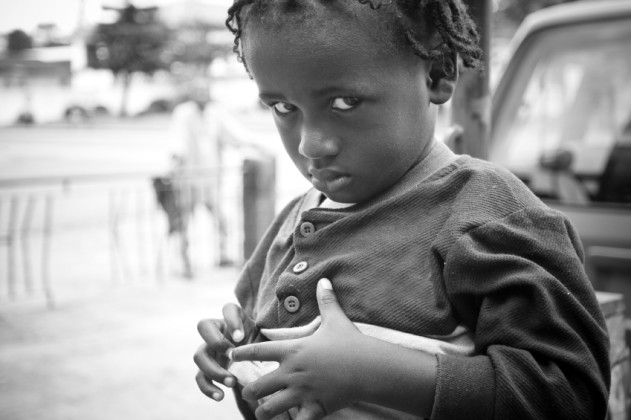My wish is that he will grow into a man who gives sincere apologies, not preemptive “sorries” to avoid consequences for bad behavior.
We are lousy apologizers. Many of us are guilty of throwing around a “sorry” not as a demonstration of contrition, but as a way to justify bad behavior. Just the other day I said to my partner “I’m sorry for being crabby. It just irritates me when you’re so bossy.”
I wasn’t sorry. I should have said, “I’m tired of arguing, but let me get in one last dig.”
My 7-year-old son Bobby uses “sorry” as an escape clause. I once watched him drag a lawn chair to the edge of our deck and then shout “sorry” at the exact moment he sent it tumbling down the stairs. Politicians often use a similar strategy, making offensive remarks to attract one set of voters while almost simultaneously issuing an apology to those they purposely offended.
It’s no wonder we don’t apologize well. Public figures rarely serve as good models. In our personal lives, many of us grew up with parents who mistook authority for infallibility and so would not have dreamed of issuing a mea culpa.
To compound the problem, our childhoods were full of instances where we were forced to apologize for acts we did not regret. For years I required Bobby to say “sorry” before we ended a time out. He thinks “sorry” means “punishment over.”
In an attempt to undo these errant lessons, I am trying to improve my own apologizing skills, so as to provide a good model to Bobby. Specifically I am very careful in how I apologize to him.
I don’t apologize for my role as the enforcer of structure in his life. If he is mad or upset because I take away his iPad or stop him from using our bed as a trampoline, that’s the breaks. Coddling him during those times would create a spoiled child. More often, I brush off his reaction and he soon engages elsewhere.
But I do apologize when I over-react. He is a boy who likes to test my patience and while it’s fine that he knows that his behavior frustrates me, it is not fine when I snap and yell at him because he refuses to put on his shoes or won’t pick up his socks from the floor. I see his body language change as he attempts to shrink away. Yelling is an act of aggression and I do not want to parent by creating fear. I don’t raise my voice often, but am working on setting the bar to never.
So when I do yell, I apologize using these thoughts as guides:
No “buts” allowed: I don’t yell at Bobby out of the blue. My frustration builds when he drags his feet before completing a requested task. Still, saying “I’m sorry I yelled but you really frustrated me” reinforces the idea that there is a point at which his behavior justifies my treating him disrespectfully. I would not allow him to be the target of victim blaming in any other context, so why would I do it myself?
An apology is not a defense of my behavior. It is an acknowledgment and a proclamation of regret that I did something wrong.
Make eye contact: So much of parenting is about power shifting. I set the structure of Bobby’s life. He accepts and even craves this security but also appropriately fights for independence by doing things like refusing to complete a requested task. My yelling is a knee-jerk aggressive attempt at re-establishing my control in our relationship.
That breach cannot be fixed if I apologize while towering over him or while engaged in another activity. I sit on the ground and look him in the eye so that we’re talking person to person. We have each other’s undivided attention.
Keep it short: A fair part of the rationale here is that a child is not going to listen to a long-winded speech. But beyond that limitation, it’s also true that if your apology takes several minutes to deliver you have probably moved from regret to defensiveness.
Back it up: Ideally, an apology comes with the assurance that the offending behavior will not be repeated. For me, it’s more complicated as I am engaged in an ongoing battle with my quick-to-expire patience. So I promise to keep trying.
Don’t demand forgiveness: Usually my son volunteers a hug at the end of our talk and all is well. But I don’t force it. Just like we shouldn’t badger a child into making an insincere apology, we should not demand a false acceptance of our own attempt to make amends. If Bobby is still mad after we talk, that’s his right. Our relationship is strong enough and my transgressions small and infrequent enough that I know things will be OK.
Bobby and I are able to have this interaction without it compromising my authority. When he tests my patience and I maintain my composure, he accepts the consequences of his behavior. My hope is that he is also learning that no one, including me, has the right to treat him disrespectfully under any circumstance. And, eventually, my wish is that he will grow into a man who gives sincere apologies, not preemptive “sorries” to avoid consequences for bad behavior.
Anne Penniston Grunsted writes about parenting, disability, and family life from her perspective as a lesbian mama. She has been published in The Washington Post, Brain, Child Magazine, Mamamia, and won the 2014 Nonfiction prize from Beecher’s Magazine. She lives in Chicago with her partner and son.
Related Links:

